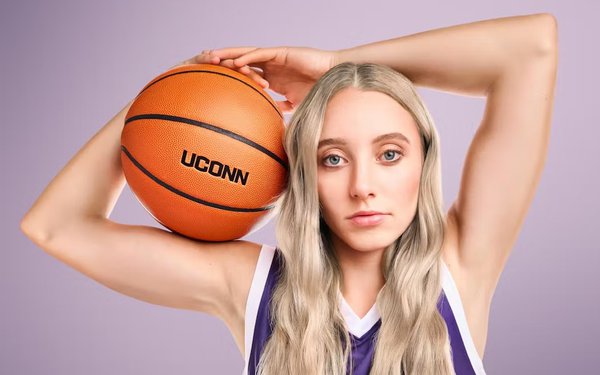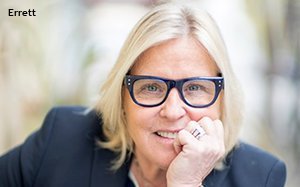
Confidence is the new beauty.
A year after teaming up with WNBA star Paige Bueckers, Madison Reed is doubling down on women’s basketball. The San Francisco-based company recently launched Team Color Wonder, featuring
multiple athletes, and expanded its partnership with UConn Athletics. Why? Because confidence and ambition are contagious, says Amy Errett, founder and CEO. Gen Z is proving her right.
This interview has been edited for length and clarity.
CPG Insider: You’ve gone all-in on women’s basketball. Why?
Amy Errett: Our partnership
is with a handful of athletes from the UConn women’s basketball team. Last year, we named the UConn court — so if you watch any game, men’s or women’s, you’ll see the
Madison Reed logo. That was a first.
advertisement
advertisement
We also have a two-year deal with Paige Bueckers. Now that she’s with the Dallas Wings, we’re sponsoring the halftime show of all their games.
And Azzi Fudd, who’s in her senior year at UConn, is also part of it.
But these aren’t just pay-for-a-post deals. These women have equity in Madison Reed. In some cases, they get
internships with us and rights of first offer if we franchise. We have 100 of our own Hair Color Bars — think Drybar, but for color — and they’d be first in line to open one.
CPG Insider: What does Madison Reed get from athlete partnerships like these?
Errett: We get brand awareness — tons of it. The UConn court alone gets huge visibility.
And many of these athletes have massive social followings, so the reach has been incredible.
CPG Insider: You’ve also had success with Gen Z through your ColorWonder line.
What clicked?
Errett: ColorWonder is demi-permanent — it fades in 25 washes. These are bold, fashion-forward colors. We even created a custom color for Paige called
“UConnic Blonde” last year.
This product line had done really well at Ulta. Before this, Gen Z wasn’t really paying attention to us. Now they are.
CPG Insider:
And the moms came along, too?
Errett: Yes! That surprised us. Moms watching the games, supporting their daughters, started discovering the brand. We got awareness from both
ends.

I was backstage with the team
at the ESPYs, and they were talking about how they color each other’s hair during the season — and their moms’ hair in the off-season. It’s become this fun, intergenerational
thing.
CPG Insider: So your average customer is getting younger?
Errett: Absolutely. She’s now a 38-year-old millennial, coloring to cover gray. When we launched
in 2015, the average was 48, now we’re in the low 40s. That’s a big shift.
CPG Insider: Salon pros used to own this category. But Gen Z seems more experimental and
collaborative — Bueckers even crowdsourced her color names.
Errett: Totally. I call them sophisticated DIYers. About half of women in the U.S. color at home, half go to salons.
We serve both: Our Color Bars are staffed with licensed cosmetologists.
But at-home color has evolved. Women start as young as 18 and aren’t afraid of it. We’re built on confidence
and authenticity. I started this company because I was tired of women over 40 feeling unattractive — and not knowing what chemicals were in their hair color. Women deserve to feel beautiful,
feel confident – and feel good about what is in their hair color. But younger people — men included, who also buy plenty of Madison Reed — see hair color as an important
part of self-expression.
CPG Insider: How does that belief shape your marketing?
Errett: We spread the message any way we can, in ways that truly change how women
feel about themselves. We have a three-chair Airstream that’s a mobile salon. We drive it all over the country. We wrap Rivians. We do radio, podcasts — all nontraditional.
Wherever our person is, that’s where we are. And she’s everywhere. She colors her hair every six weeks.
When someone says, “You can’t put a store there, there
aren’t enough women,” I say, “Let me explain something. Within 15 miles, there’s a gazillion women coloring their hair.” Every store can work — and it has.
We’re in every Ulta. We’re in 1,600 Walmarts. We’re on Amazon. We’ve got our own ecomm. We’re going global.
This is an omnichannel story. This is everywhere
she is. And we should be, too — right?